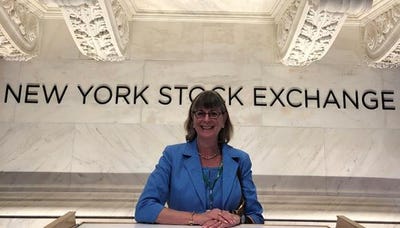To Sell or Not to Sell?
Various factors made that a tough question for waste firms to answer in 2010.
Editor’s Note: The article below is an updated version of the September 2010 edition of The Circular File, a monthly e-mail newsletter written by waste industry analyst Leone Young and produced by Penton Media. The September issue covered mergers and acquisitions, always a topic of interest to the waste industry. To subscribe to The Circular File or other Waste Age newsletters, click here.
A common refrain among industry players is that a pickup in merger and acquisition (M&A) activity occurred last year, but perhaps not to the extent as originally expected. On the one hand, the uncertainty surrounding the fate of the Bush tax cuts — they were extended in December — certainly forced a number of private operators to at least explore the sale of their companies in 2010. The possibility of higher capital gains taxes was a large concern.
On the other hand, those drivers were offset by the sense that last year was not the right time to sell, as the business levels of many potential sellers — particularly those who handle construction and demolition (C&D) debris volume —remained well below peak. The questions facing potential sellers in 2010 were: Should they wait for better revenues and a potentially higher multiple and valuation? And would those in turn offset or even exceed potentially higher capital gains taxes?
Thus, although a number of waste companies pressured by the credit crunch threw in the towel and got out of the business, many healthier companies that came through the depths of the Great Recession held back and did not sell their businesses in 2010.
Regional Variations
There was considerable variation in acquisition activity across areas of the country. The West saw less activity, likely as economic conditions were relatively worse and business levels more depressed. The Midwest also was fairly quiescent.
The Northeast was more active, perhaps because more distressed properties were forced into some action and the presence of more private equity interest and focus. The sheer density of the area and subsequently greater numbers of players also was likely a factor.
The Southeast also was a hotbed of activity. First, it had the largest transaction of the year, the IESI-BFC/Waste Services merger. However, more run-of-the-mill activity was largely driven by the aggressive acquisition programs of the independent regional firms Advanced Disposal and Waste Pro. Although their purchases were generally smaller in scale, for sheer numbers both companies dominated the M&A headlines.
Among the publicly traded firms, Waste Connections, IESI-BFC and Waste Management were active on the acquisition front, and WCA Waste signaled that it would restart its acquisition program after it amended a credit facility.
Desired Properties
Besides the usual tuck-ins, sought-after acquisition targets included recycling properties, particularly single-stream recycling companies or facilities that can be converted to single-stream processing, and C&D recycling companies and facilities. Republic Services, which generally was not active on the acquisition front last year, did purchase a C&D recycling company in Las Vegas to complement its franchise there. Waste Management made investments in organics processing.
Notable investments by private equity players in 2010 included Clairvest’s investment in Hudson Valley Waste in upstate New York and Ironwood and Summer Street’s investments in Action Carting Environmental in New York City. The cash infusions enabled Action to purchase Republic Services’ New York City assets. Private equity firm Penfund also made its first investment in the industry, in Choice Environmental in Florida. Roark Capital also was active, having made an investment in Waste Pro and later in GFL, a Canadian firm.
There have been numerous reports of increased private equity interest in the industry; perhaps as many as a dozen new names are at least looking at the sector. Stemming from this, however, few transactions actually emerged or were completed in 2010. Private equity generally wants to invest in and support an aggressive growth platform. In this still sluggish economic environment, with so many uncertainties, envisioning and implementing an aggressive growth strategy is problematic for many.
Many waste companies also may have thought 2010 was the wrong time to sell. For smaller companies, credit conditions remained tight, though they have eased since the spring of last year, and traditional lenders to the industry, notably Comerica, were quite active in 2010.
Despite the pickup in activity, by most reports, valuations and multiples paid in 2010 remained reasonable, either consistent or trending up slightly; this did not encompass key landfill or transfer station properties, where scarcity value trumped valuation. The strategic players reported continued availability and/or ability to do smaller tuck-ins at four to five times earnings before interest, taxes, depreciation and amortization (EBITDA), with larger transactions done at around six to seven times EBITDA. Given that, valuation levels may have been better than many potential sellers’ perceptions.
What’s in Store for 2011?
Although more of the same with regard to smaller transactions is generally expected, industry speculation always revolves around who could be sold next. Independent regionals, particularly those with private equity money invested in them, consistently come to mind, as private equity generally has some timeframe for its investment.
Large independent regionals that remain family owned or controlled are always desired acquisition targets, but not many transactions of this type took place in 2010.
Leone Young is a former senior environmental services analyst with New York-based Citigroup. She is the author of The Circular File, a monthly e-mail newsletter that features timely analysis of issues and trends affecting the solid waste industry.
Related Stories
About the Author(s)
You May Also Like




